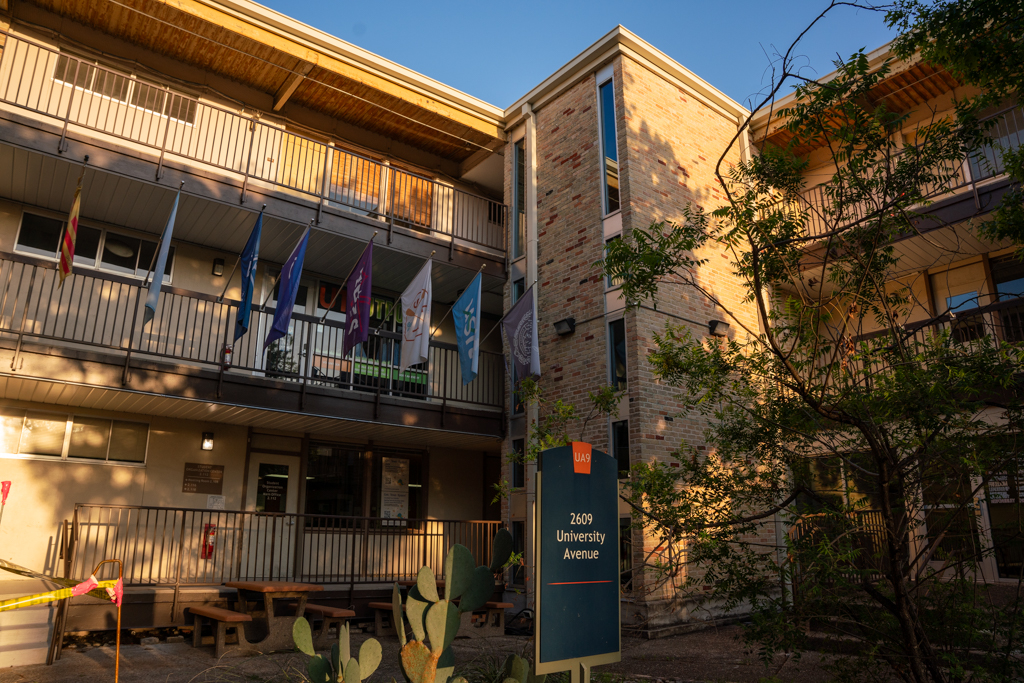After hiring a $200,000-per-year adviser, the University of Texas System Board of Regents reassigned him last week and released a letter Friday addressing concerns about the Boards commitment to academic research.
The hire of the adviser, Rick ODonnell, raised concerns among alumni, administrators and lawmakers because of ODonnells work at the Texas Public Policy Foundation, a nonprofit, conservative and nonpartisan think tank that researches public policy. The foundation, and ODonnell specifically, have called for a focus on teaching and for less emphasis on academic research at universities.
In a December 2008 policy statement for the foundation, ODonnell questioned the current system, which encourages scholarly and scientific research.
Given that nearly half of the money going into higher education today is directed toward research, an area dominated by tenured professors, tenure track professors and Ph.D. programs, an examination of this system is in order, ODonnell wrote. Everyone knows that it is scientific, academic research that fuels the modern economy except that it doesnt.
ODonnell was initially hired as an adviser last month reporting directly to the Board of Regents at a rate of $200,000 per year. Because this role conflicted with the role of System Chancellor Francisco Cigarroa, ODonnell was reassigned last week, System spokesman Matt Flores said.
Flores said ODonnell now reports directly to Scott Kelly, executive vice chancellor for business affairs, and is a non-contract System employee whose service is expected to end Aug. 31, 2011. He will now offer research and advising services for the Boards Task Forces on University Excellence and Productivity and on Blended and Online Learning. He still receives an annual rate of $200,000, which is prorated according to how long he serves.
Flores said the last time the Board sought input from outside advisers was in 2009. A seven-member group made up of former medical school administrators and university presidents recommended against the merger of UT-San Antonio and The UT Health Science Center at San Antonio. Flores said this advisory group did not receive pay for its services.
Texas Exes President Richard Leshin released a letter to alumni and to the Board on Thursday. He urged members to contact the Board and express the value of academic research, contrary to the views of the Boards new hire.
In addition to this intellectually flawed view that research at UT is valueless, these same consultants also believe that tenured faculty, distinguished in their fields, can and should be replaced by part-time, contract lecturers, Leshin wrote. They point to for-profit institutions as the correct model for controlling costs, because those institutions rely almost exclusively on lower-cost lecturers.
At the Faculty Council meeting last week, UT President William Powers Jr. said the University should embrace reforms on efficiency, but not those that attack the research the University does.
These reforms cut at the core of what a major research university does because they purposely say the research we do isnt valuable, Powers said.
The Board of Regents chair and three vice-chairs responded in writing to the Texas Exes letter Friday, stating its commitment to encourage academic research at UT.
Our view is that academic research is extremely valuable to society, the chairs said in their letter. There has not been, nor will there be, an attempt to exclude research in how we value faculty.
Last month, the Board approved $56 million from the System to expand UTs advanced computing research center, if the center wins a $54 million National Science Foundation grant.




















